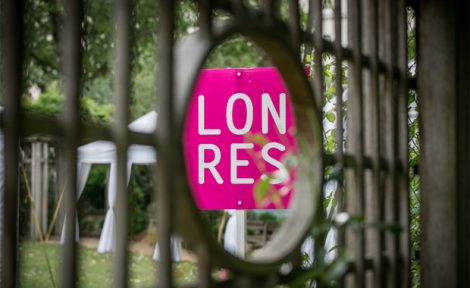The impact of Universal Credit on the lettings market
Sherrelle Collman, Managing Director of Caridon Landlord Solutions, explains how COVID-19 has introduced the new welfare system to thousands of landlords and tenants.


As Coronavirus took hold, many people who had never relied on the welfare system have applied for Universal Credit. It also means that thousands of landlords who have no experience of the welfare system may now have tenants on Universal Credit.
Many are anxious, because of the criticism Universal Credit has received. The good news is that more resources have been deployed to local authorities to help claimants, and immediate access to Advance Payments, increases to Universal Credit and raising the Local Housing Allowance rate to the 30th percentile of market rents from April, have been put in place.
What is Universal Credit?
Universal Credit was introduced in April 2013 as the ‘flagship’ of the Government’s Welfare Reform. It replaced the means-tested benefits and tax credits for people of working age, on a low income, who need financial assistance to meet their obligations, including paying rent to their landlord.
It is paid on a monthly basis, direct to the claimant, who is expected to budget as he/ she would if they were working, including paying the ‘housing element’ of the award to his/her landlord.
Universal Credit and the landlord
The ‘Housing Cost Element’ of Universal Credit is paid directly to the claimant, as part of their monthly award.
Housing costs are calculated using the Local Housing Allowance (LHA), based on the claimant’s entitlement. A single person under 35 will be entitled to a shared room rate unless they satisfy exemptions such as having been in a homeless hostel for three months or more.
Most tenants pay their rent, but unprecedented levels of rent arrears are now likely. However, there are things landlords and agents can do to help tenants mitigate this risk.
If the claim is a new claim, it may take up to five weeks to receive the first payment, causing the tenant to accrue rent arrears and the landlord’s problems with cashflow and the ability to meet his/her own obligations.
Many tenants are likely to find that the amount of Universal Credit they receive doesn’t cover their existing rent agreement so landlords and agents need to work with tenants to establish their financial position and where possible make temporary allowances for this. Receiving some rent is better than nothing.
In addition, unlike the old system, Universal Credit’s default position is to pay the tenant their Housing Costs directly, rather than landlord.
Most landlords will be happy with their tenant passing on rent when they receive Universal Credit, the same as they would pay when they were paid. However, we understand unprecedented levels of rent arrears are likely so there are some things that landlords and agents can do to help tenants mitigate this risk.
Rent adjustments:
Communicate with tenants and support them as much as you possibly can. If they are having to apply for Universal Credit, it is most likely because they have lost their job or had a significant drop in income. They will be concerned they could also lose their home. Where possible, agents should talk to landlords about whether they would consider a rent reduction to meet the housing element of Universal Credit. Some rent to help cover a mortgage and maintain the tenancy in the long-term is better than nothing. If at all possible, some landlords may consider offering a rent holiday with a clear payment plan in place for when circumstances improve.
Tenancy Agreement Information:
If your tenant has had to apply for Universal Credit because of COVID-19, they will require a letter from their landlords or agent verifying the rental amount, the address of the property they reside, and when the tenancy commenced. This will help them to qualify for the housing element of Universal Credit which will go towards covering their rent.
Benefit Assessment Period (BAP):
When a person claims Universal Credit, the government looks at an individual’s circumstances (including any childcare costs, income and living arrangements) within a set monthly assessment period, BAP. The start of the assessment period is based on the date of their UC claim. Their circumstances at the end of that set period each month will determine the payment, which creates two main problems.
If payday doesn’t fall in the assessment period, the system may think they’re earning more – and reduce their Universal Credit.
The first relates to work. If a tenant’s payday does not fall neatly within their assessment period, the system might think they are earning more than they actually are and, therefore reduce their Universal Credit and associated support. The second relates to housing. Because a person’s living circumstances on the last day of the assessment period are what count, it is possible they can lose out on the housing cost element. This is one of the most common issues we have to help landlords and tenant with. Work with your tenant to establish key dates such as their Benefit Assessment Period (the date their entitlement begins) so that you can see how it falls in line with the Tenancy Agreement. Some landlords may want to issue a new agreement to help it fall in line, but be mindful that this could cause problems should the landlord subsequently wish to seek possession, so always get advice beforehand.
Alternative Payment Arrangement (APA):
Where tenants have fallen into two months of arrears or more, landlords may wish to apply for an Alternative Payment Arrangement which enables the housing cost element of Universal Credit to be paid directly to the landlord. In our experience, some tenant prefer this option anyway as it means they can more easily manage the rest of their finances themselves. Landlords should discuss this with their tenants and if in agreement, fill out a UC-47 form to apply for this.
Third Party Deductions:
If a tenant has recently been furloughed, they may already have fallen into arrears. Should they wish to, landlords can apply for Third Party Deductions to reduce this, where an additional amount is taken monthly from the claimant’s personal allowance. However, under the circumstances we would highly recommend landlords working with their tenants to come to a payment agreement first if possible.
What else can agents do to mitigate risk?
A good working knowledge of Universal Credit is essential. Knowing how to detect when a claim must be made; how and when the payment is likely to be made; how to secure approved access to your tenant’s online records; how to assist your tenant in responding to Jobcentre journal requests and changes in circumstances, will all help.
Government Easy Read Guide to Universal Credit www.caridonlandlordsolutions.co.uk




